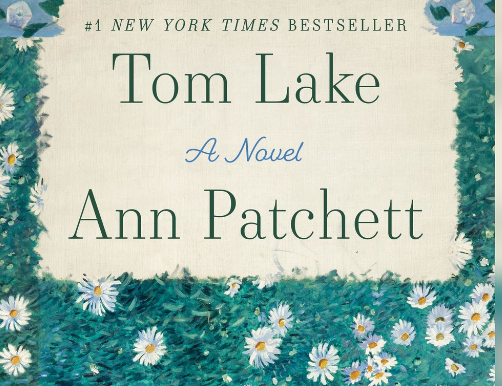The enduring appeal of intergenerational stories
What once seemed so definitive – love, loss, victories, fame – were mere moments whose significance fade as life goes on. This is what makes intergenerational stories so powerful.

A long sea-facing verandah with red-oxide flooring and concrete railings wide enough to sit and read on. Three small steps lead into a wild, thriving garden. Three brown dachshund sisters snoop around the bushes.
In the verandah, an eight-year-old girl lies on her tummy, a book in front of her, but her eyes are on the dogs. She does not want to study. Her anglo-Indian tuition teacher sitting in front of her, forcing her to ignore much more attractive scenes to look at the words in her book.
The eight-year-old's attention is on her three dogs, who had cornered a cobra in one of the garden hedges, barking, calling attention to the gardener working nearby. The scene amuses the girl. The tuition teacher was terrified. The dogs chase the cobra towards the verandah; the girl is relieved by the distraction. Meanwhile, her teacher has climbed onto the concrete railing, the height of the climb and her short dress revealing her chubby thighs and bright blue frilly undies. The child is now ecstatic, uncontrollably laughing, and rolling on the floor.
The cobra is caught and taken away, the girl gets a hard tap on her back from her mother and the teacher is helped down from the railing. A sort of peace slowly returns to the verandah. The teacher looks at the child and scolds her, "You laughed at my fear, child. You are no god's child, you are the devil's child!" This gets the child roaring with laughter again.
The child is my mother, who is now 60 and still remembers this incident. In her narration over coffee one evening, I get transported to the India of the 70s, her childhood home in Vizag, and the backdrop of a sea at the heart of a war. While war raged on, everyday activities continued, the gardener pruning, the dogs guarding, the child unwilling to study... and this memory, one of the millions from an age gone by, endures.
I've been slow-reading Tom Lake, Ann Patchett's pandemic novel about a family forced together by the pandemic on their cherry farm. The story is about 57-year-old Lara Nelson and her three adult daughters. With few farm workers and harvesters available for work, Lara, her husband Joe and their daughters must pick all the fruit.

And to make the time go faster, Lara tells her girls the story of her youth, her past life as a theatre actor, a past love who went on to become an Oscar-winning actor, and whom she does not think about that much anymore – even though her daughters' interest in her narration is only held by that aspect of the story.
I've spent weeks with this book – not intentionally or purposefully – but only because its contents allow you to slow down, savour and absorb them so that one is transported to this idyll world locked away from the tragedies of those pandemic years.
The back-and-forth between the 1980s and 2020, the creation of two worlds, many interesting characters, acting and actors, intimacies, and the rush of new love. There's a little bit about Lara's grandmother, her boutique tailor shop and a protected upbringing; cut to Hollywood's quirks and young, bright-eyed Lara stepping foot in L.A. Then there are bits about Lara's now husband Joe – who she met during her theatre years when she was dating the famous actor; who patiently listens to Lara's narration although he's been there; who you're rooting for because he's so calm, understated and rock-solid.
Descriptions of Cherry Country are another reason this book keeps you hooked. But most of all, what hooks me and several others to this well-reviewed book, is the intergenerational aspect of it. The ability to transcend worlds from one chapter to the next; the power it gives the narrator not only to reminisce but also let go of things no longer important; and the lessons it holds for Lara's daughters and us as readers, that what once seemed so definitive – love, loss, victories, fame – were mere moments whose significance fade as life goes on.
Whether in books or oral history, this is what makes intergenerational stories so powerful. Because after all, these stories are memory-sharing patterns that begin early in our lives and inform our relationships. It instils in us a sense of cultural belonging.
Remembering and retelling intergenerational histories is particularly significant for women, more so for indigenous women, as it allows a record of stories that refuse the oppresor/colonial/patriarchal version. Such stories foster connections between generations, and allow us to define our past, present and future our way – both the good and bad. They have the power to generate witness, preserve memory, and imagine alternative futures.
Studies are beginning to investigate the relationship between mental health and intergenerational memory, with a growing body of research showing that intergenerational knowledge of one’s family history is associated with positive mental health and well-being.
Just as they preserve personal histories and societal traumas, intergenerational stories also do the simpler tasks of preserving memories – the scent of a passed-down saree, a view from a childhood bedroom, memories of lofty dreams that came to nought, shattering heartbreaks and unexpected life twists that led to unimaginable successes.
It's perhaps why we tend to remember the grandma version of stories more than any book we read as kids; or why we hold on to keepsakes from old homes. Or why we devour stories like Tom Lake. They give us a chance to connect with our roots and the means to build stories for the generations to come.